第45章 Section 1(1)
On the mountain-side above the town of Brissago and commanding two long stretches of Lake Maggiore, looking eastward to Bellinzona, and southward to Luino, there is a shelf of grass meadows which is very beautiful in springtime with a great multitude of wild flowers. More particularly is this so in early June, when the slender asphodel Saint Bruno's lily, with its spike of white blossom, is in flower. To the westward of this delightful shelf there is a deep and densely wooded trench, a great gulf of blue some mile or so in width out of which arise great precipices very high and wild. Above the asphodel fields the mountains climb in rocky slopes to solitudes of stone and sunlight that curve round and join that wall of cliffs in one common skyline. This desolate and austere background contrasts very vividly with the glowing serenity of the great lake below, with the spacious view of fertile hills and roads and villages and islands to south and east, and with the hotly golden rice flats of the Val Maggia to the north. And because it was a remote and insignificant place, far away out of the crowding tragedies of that year of disaster, away from burning cities and starving multitudes, bracing and tranquillising and hidden, it was here that there gathered the conference of rulers that was to arrest, if possible, before it was too late, the debacle of civilisation.
Here, brought together by the indefatigable energy of that impassioned humanitarian, Leblanc, the French ambassador at Washington, the chief Powers of the world were to meet in a last desperate conference to 'save humanity.'
Leblanc was one of those ingenuous men whose lot would have been insignificant in any period of security, but who have been caught up to an immortal role in history by the sudden simplification of human affairs through some tragical crisis, to the measure of their simplicity. Such a man was Abraham Lincoln, and such was Garibaldi. And Leblanc, with his transparent childish innocence, his entire self-forgetfulness, came into this confusion of distrust and intricate disaster with an invincible appeal for the manifest sanities of the situation. His voice, when he spoke, was 'full of remonstrance.' He was a little bald, spectacled man, inspired by that intellectual idealism which has been one of the peculiar gifts of France to humanity. He was possessed of one clear persuasion, that war must end, and that the only way to end war was to have but one government for mankind. He brushed aside all other considerations. At the very outbreak of the war, so soon as the two capitals of the belligerents had been wrecked, he went to the president in the White House with this proposal. He made it as if it was a matter of course. He was fortunate to be in Washington and in touch with that gigantic childishness which was the characteristic of the American imagination. For the Americans also were among the simple peoples by whom the world was saved. He won over the American president and the American government to his general ideas; at any rate they supported him sufficiently to give him a standing with the more sceptical European governments, and with this backing he set to work--it seemed the most fantastic of enterprises--to bring together all the rulers of the world and unify them. He wrote innumerable letters, he sent messages, he went desperate journeys, he enlisted whatever support he could find; no one was too humble for an ally or too obstinate for his advances; through the terrible autumn of the last wars this persistent little visionary in spectacles must have seemed rather like a hopeful canary twittering during a thunderstorm. And no accumulation of disasters daunted his conviction that they could be ended.